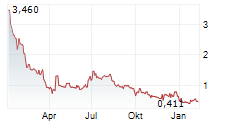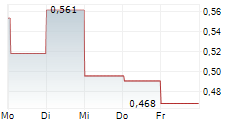
Sequana Medical Announces Strong 24-Month Results
from POSEIDON Study at AASLD The Liver Meeting® in San Diego;
US PMA alfapump approval expected before end of Q1 2025
- alfapump was very effective in control of ascites, virtually eliminating the need for large volume paracentesis (LVP) long term
- Key POSEIDON investigators report alfapump is safe and effective tool for patients requiring refractory ascites management for over six months
- Overall survival of 62% at two years in the POSEIDON pivotal cohort
- Positive ongoing interaction with FDA to complete PMA review based upon responses submitted at end of September 2024
- US PMA1 approval remains on track before end of Q1 2025
Ghent, Belgium - 18 November 2024 - Sequana Medical NV (Euronext Brussels: SEQUA, the "Company" or "Sequana Medical"), a pioneer in the treatment of drug-resistant fluid overload in liver disease, heart failure and cancer, today announces that a poster was presented with new data from the POSEIDON study at the American Association for the Study of Liver Diseases (AASLD) conference ('The Liver Meeting') taking place in San Diego, California (US) from 15-19 November 2024.
The poster, entitled "alfapump System in Refractory Ascites: Results from the POSEIDON Study at 24 months"2 concerns the new 24-month results of the POSEIDON study3 which concluded that the alfapump system (AS) was very effective in control of ascites, virtually eliminating the need for large volume paracentesis (LVP) long term. Frequency of LVP requirement in the roll-in cohort decreased from pre-implantation to 3 months post-impant and persisted to 24 months by more than 50% (mean LVP/month 2.7±1.3 to 0.1±0.2). Ascites volume removed by LVP fell from 22.8 ±12.5L/month pre- to 2.6± 6 L/month 3 months post-alfapump system implant. Overall survival at 24 months in the alfapump pivotal cohort was 62%.
The poster was presented by Dr. H.E. Vargas, M.D., Professor of Medicine for the Mayo Clinic College of Medicine (Phoenix, Arizona, US), who commented: "The alfapump system was very effective in control of ascites, virtually eliminating the need for LVP long term, up to 24 months. However, close monitoring is needed for the development of AKI (Acute Kidney Injury) or infection, which must be treated promptly to prevent adverse outcomes. Data from the roll-in cohort provides evidence the alfapump can work well in circumstances close to clinical practice. For patients requiring refractory ascites management for more than 6 months, the alfapump is a safe and effective tool."
Ian Crosbie, Chief Executive Officer of Sequana Medical NV, continued: "We are delighted with the two year results from the POSEIDON study confirming the long term benefits to alfapump patients, particularly the virtual elimination of large volume paracentesis, which has such a devastating impact on the life of these patients. Overall survival of over 60% at two years in the pivotal cohort compares very favourably to the published literature and we will continue to explore this further. The feedback we continue to receive from the clinical community confirms our assessment of the large and growing universe of US patients with recurrent and refractory ascites due to liver cirrhosis, driven by NASH / MASH and alcoholic liver disease, and the clear need for modern treatment options. We are pleased with the constructive and positive ongoing discussions with the FDA to address the remaining topics of our PMA application. We continue to plan for PMA approval before the end of Q1 2025 and US commercial launch in H2 2025, delivering a step change in the treatment options available to these patients".
Sequana Medical management is attending The Liver Meeting and is available to meet.
For more information, please contact:
Sequana Medical
Investor relations
E: IR@sequanamedical.com
T: +32 (0)9 496 17 27
About the POSEIDON study
POSEIDON is a single-arm, open-label, within-subject crossover study of the alfapump in patients with recurrent and refractory ascites due to liver cirrhosis in approximately 20 centres across the US and Canada. The study consisted of a Pivotal Cohort for primary endpoint analysis and an additional Roll-In Cohort for new centers to become familiarized with the implantation procedure before they enrolled patients in the Pivotal Cohort. Pivotal Cohort patients entered into a three-month pre-implant observation period in which they received standard of care therapy).
About alfapump in recurrent or refractory ascites due to liver cirrhosis
Recurrent or refractory ascites is a severe condition characterized by the accumulation of fluid in the abdomen. The current standard treatment involves therapeutic paracentesis, an invasive and burdensome procedure that drains ascites from the abdomen using a large needle over an extended period. If approved by the FDA, the alfapump could become the first active implantable medical device in the US that automatically and continuously removes ascites from the abdomen into the bladder, where it is naturally eliminated through urination.
The PMA application submitted to the US FDA was based on the successful execution of Sequana Medical's pivotal POSEIDON study, a landmark study across 18 centers in the US and Canada with a total of 69 patients implanted with the alfapump. The primary effectiveness endpoints at six months post-implantation in the Pivotal Cohort4 exceeded the predefined thresholds with statistical significance, and primary safety endpoint data was in line with expectations5. Data at 12 months post-implantation continued to show a strong and durable clinical profile, virtually eliminating the need for therapeutic paracentesis and delivering an improvement in subjective physical health (assessed by SF-36 PCS) and ascites symptoms (assessed by Ascites Q) 6.
Data from the patient preference study and a matched cohort analysis of the NACSELD-III registry with the POSEIDON Pivotal Cohort indicated that US patients have a strong preference for the alfapump vs standard paracentesis procedures and that the safety profile of the alfapump is comparable to standard of care.
The North American market of recurrent and refractory ascites due to liver cirrhosis is forecast to grow on average 9% per year, from approximately 78,000 patients in 2025 reaching 147,000 patients by 2032, primarily driven by the increasing prevalence of NASH / MASH7. The total market opportunity for alfapump is estimated at $2.4 billion in 2025, including approximately $600 million from the Company's initial priority market targeting patients requiring at least 12 paracenteses per year. To date, over 1,000 alfapump systems have been implanted.
About Sequana Medical
Sequana Medical NV is a pioneer in treating fluid overload, a serious and frequent clinical complication in patients with liver disease, heart failure and cancer. This causes major medical issues including increased mortality, repeated hospitalizations, severe pain, difficulty breathing and restricted mobility. Although diuretics are standard of care, they become ineffective, intolerable or exacerbate the problem in many patients. There are limited effective treatment options, resulting in poor clinical outcomes, high costs and a major impact on their quality of life. Sequana Medical is seeking to provide innovative treatment options for this large and growing "diuretic resistant" patient population. alfapump® and DSR® are Sequana Medical's proprietary platforms that work with the body to treat diuretic-resistant fluid overload, delivering major clinical and quality of life benefits for patients and reducing costs for healthcare systems.
The Company's Premarket Approval (PMA) application for the alfapump was submitted to the US FDA in December 2023 and accepted for substantive review in January 2024, having reported positive primary and secondary endpoint data from the North American pivotal POSEIDON study in recurrent or refractory ascites due to liver cirrhosis. US market approval of the alfapump is anticipated before the end of Q1 2025 with US commercial launch planned for H2 2025.
Results of the Company's RED DESERT and SAHARA proof-of-concept studies in heart failure support DSR's mechanism of action as breaking the vicious cycle of cardiorenal syndrome. All three patients from the non-randomized cohort of MOJAVE, a US randomized controlled multi-center Phase 1/2a clinical study, have been successfully treated with DSR, resulting in a dramatic improvement in diuretic response and virtual elimination of loop diuretic requirements. The independent Data Safety Monitoring Board approved the start of the randomized MOJAVE cohort of up to a further 30 patients, which is planned after alfapump US PMA approval. Sequana Medical is listed on the regulated market of Euronext Brussels (Ticker: SEQUA.BR) and headquartered in Ghent, Belgium. For further information, please visit www.sequanamedical.com.
Important Regulatory Disclaimers
The alfapump® system is currently not approved in the United States or Canada. In the United States and Canada, the alfapump system is currently under clinical investigation (POSEIDON Trial) and is being studied in adult patients with refractory or recurrent ascites due to liver cirrhosis. DSR® therapy is still in development and it should be noted that any statements regarding safety and efficacy arise from ongoing pre-clinical and clinical investigations which have yet to be completed. There is no link between DSR therapy and ongoing investigations with the alfapump system in Europe, the United States or Canada. Note: alfapump® and DSR® are registered trademarks.
Forward-looking statements
This press release may contain predictions, estimates or other information that might be considered forward-looking statements. Such forward-looking statements are not guarantees of future performance. These forward-looking statements represent the current judgment of Sequana Medical on what the future holds, and are subject to risks and uncertainties that could cause actual results to differ materially. Sequana Medical expressly disclaims any obligation or undertaking to release any updates or revisions to any forward-looking statements in this press release, except if specifically required to do so by law or regulation. You should not place undue reliance on forward-looking statements, which reflect the opinions of Sequana Medical only as of the date of this press release.
1 Premarket approval, last consulted on 14 November 2024
2 Source: https://journals.lww.com/hep/fulltext/2024/10001/the_liver_meeting__san_diego,_california,_nov.1.aspx
3 The POSEIDON study enrolled 69 patients (29 in the roll-in cohort and 40 in the pivotal cohort) with cirrhosis and RA, who were inappropriate for TIPS and required frequent large volume paracentesis (LVP). The study evaluated the alfapump system (AS), which provides continuous paracentesis via a subcutaneous pump
4 The Pivotal Cohort is used for the primary effectiveness endpoints and consists of 40 patients implanted with the alfapump
5 Data reported in press release of 25 October 2022
6 Data reported in press release of 19 October 2023
7 Based on US and Canada market assessment conducted by highly experienced international consulting group
Attachments
- 241118 Press release_AASLD_ENG (https://ml-eu.globenewswire.com/Resource/Download/4aa0c3e3-362d-47e7-996a-755b8c28d301)
- 241118 Press release_AASLD_NL (https://ml-eu.globenewswire.com/Resource/Download/422a59e4-5cb2-4d08-8a14-95a330cc2fc2)



